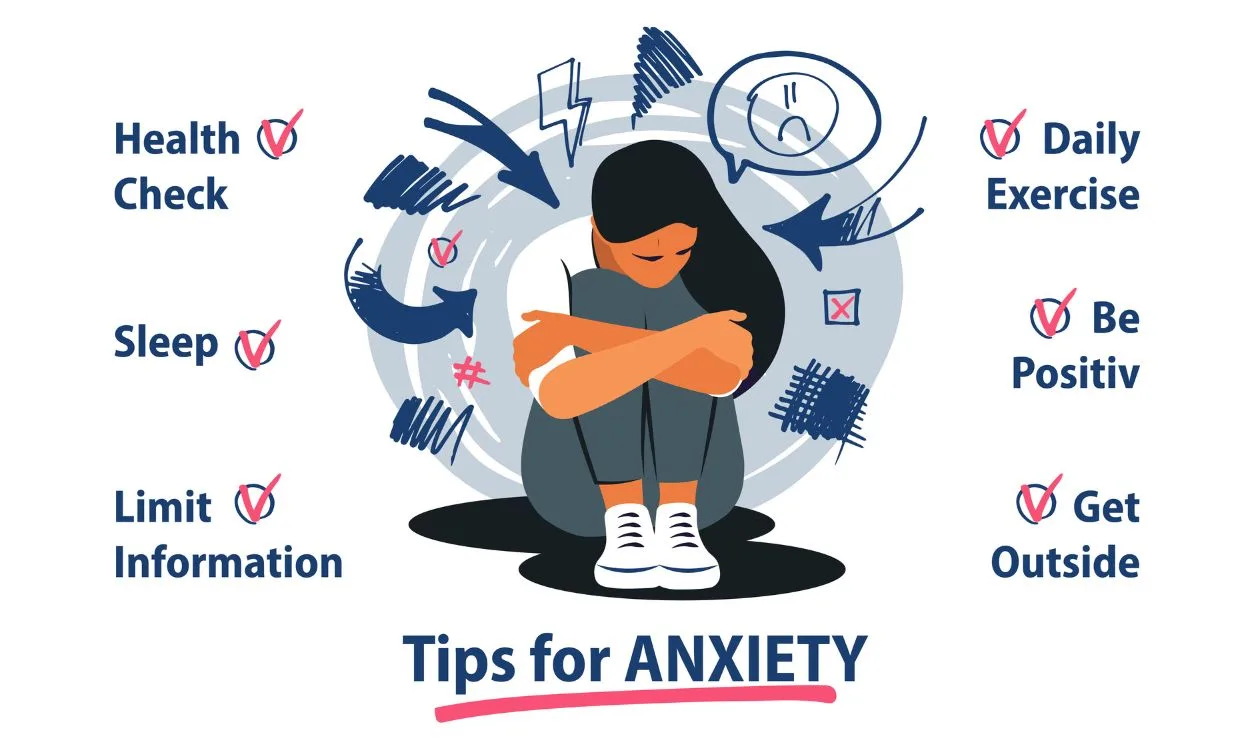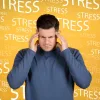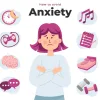What are the signs and symptoms of anxiety?
Anxiety is a common mental health condition that affects millions of people worldwide, including many in India. It’s important to be aware of the signs and symptoms of anxiety so that you can recognize them in yourself or others and seek appropriate support and treatment. In this article, we will discuss the various signs and symptoms of anxiety and provide helpful information on managing anxiety.
Signs and Symptoms of Anxiety
- Excessive Worry: Persistent and uncontrollable worry about everyday situations. This worry is often disproportionate to the actual circumstances and can be difficult to control.
- Restlessness: Feeling constantly on edge, restless, or unable to relax. This may manifest as fidgeting, pacing, or a constant need to move.
- Difficulty Concentrating: Trouble focusing or maintaining attention on tasks, leading to decreased productivity and performance.
- Irritability: Feeling easily annoyed, agitated, or on edge. Small things that wouldn’t typically bother you may trigger strong emotional reactions.
- Sleep disturbances: Difficulty falling asleep, staying asleep, or experiencing restless, unsatisfying sleep. Insomnia is a common symptom of anxiety.
- Physical Symptoms: Anxiety can manifest in a variety of physical symptoms, including:
- Rapid heartbeat
- Shortness of breath or difficulty breathing
- Sweating
- Trembling or shaking
- Chest pain or discomfort
- Nausea or stomach discomfort
- Headaches or migraines
- Muscle tension or aches
- Avoidance: Avoiding certain situations or places that may trigger anxiety symptoms. This can include social events, crowded places, or situations that have caused anxiety in the past.
- Excessive self-consciousness: Feeling excessively self-conscious or worrying about being judged or embarrassed by others. This can lead to avoidance of social situations or difficulty speaking in public.
- Panic Attacks: Sudden and intense episodes of fear or terror that are accompanied by physical symptoms such as a racing heart, chest pain, dizziness, and shortness of breath.
It’s important to note that everyone experiences anxiety differently, and individuals may not exhibit all of these symptoms. If you or someone you know is experiencing any of these signs and symptoms and it is interfering with daily life, it is recommended to seek professional help.
Managing Anxiety
While anxiety can be challenging to deal with, there are several strategies that can help manage and reduce its impact. Here are some effective techniques:
- Seek Support: Reach out to a mental health professional who can provide guidance and support. Therapy, such as cognitive-behavioral therapy (CBT), can be highly effective in managing anxiety.
- Practice Relaxation Techniques: Techniques like deep breathing, meditation, and progressive muscle relaxation can help calm the mind and reduce anxiety.
- Physical Activity: Engage in regular exercise, such as walking, jogging, or yoga. Physical activity releases endorphins, which help improve mood and reduce anxiety.
- Maintain a Healthy Lifestyle: Prioritize self-care by getting enough sleep, eating a balanced diet, and avoiding excessive caffeine or alcohol consumption.
- Challenge Negative Thoughts: Identify and challenge negative thoughts or beliefs that contribute to anxiety. Replace them with more positive and realistic thoughts.
- Practice Mindfulness: Stay present in the moment and focus on the here and now. Mindfulness exercises can help reduce anxiety by redirecting attention away from worries and fears.
- Establish a Routine: Creating a structured daily routine can help provide a sense of stability and control, reducing feelings of anxiety.
- Limit Stressors: Identify and limit exposure to stressors whenever possible. This may include setting boundaries, delegating tasks, or avoiding triggers that contribute to anxiety.
Remember, managing anxiety is a journey, and what works for one person may not work for another. It’s essential to find strategies that resonate with you and seek professional guidance when needed.
Introducing Fitpaa: Your Partner in Mental Health
While the tips mentioned above can be helpful in managing anxiety, sometimes an extra level of support may be needed. Fitpaa, an AI-driven Metabolism monitoring and management technology, offers personalized assistance and guidance to help individuals achieve their health and fitness goals, including mental well-being.
Fitpaa utilizes the latest research in Lifestyle Medicine and Behavioral Therapy to offer a comprehensive approach to overall health. The Fitpaa app provides various tools and features that can support individuals in their mental health journey, such as:
- Metabolism Assessment: Understanding your current metabolism can provide valuable insights into your overall health and well-being. Fitpaa’s Metabolism Monitoring Technology assesses various aspects of your life to gain a comprehensive understanding of your metabolism.
- Fitpaa Capsule: Based on your metabolism, health goals, current lifestyle, and eating habits, Fitpaa’s expert team of fitness coaches, nutritionists, and doctors create a personalized Fitpaa Capsule. This combination of medical therapy, medical exercise therapy, medical nutrition therapy, and cognitive behavior therapy optimizes your metabolism to help you achieve your health and fitness goals with a 100 percent guarantee.
- Fitpaa Realtime Guidance: Fitpaa’s Realtime Guidance technology incorporates cognitive behavioral therapy techniques to deliver guaranteed results. It provides habit-building tools, timely nudges, purpose-finding exercises, and real-time guidance to help you stay motivated and take necessary actions to achieve your desired results.
- Fitpaa Mobile App: The Fitpaa mobile app is a convenient tool that provides all the necessary resources to follow your Fitpaa Capsule. It offers a virtual workout trainer, diet tracker, performance tracking, progress tracking, and more. The app makes it easy to follow your fitness plan and stay on track towards your goals.
By combining evidence-based techniques with advanced technology, Fitpaa aims to support individuals in achieving their health and fitness goals, including managing anxiety and improving overall mental well-being.
If you’re ready to take control of your mental health and embark on a journey towards optimal well-being, download the Fitpaa app today and experience the joy of getting fit and excelling in life.
Remember, your well-being is our mission at Fitpaa! We are here to help you achieve your health and fitness goals with guaranteed results.









